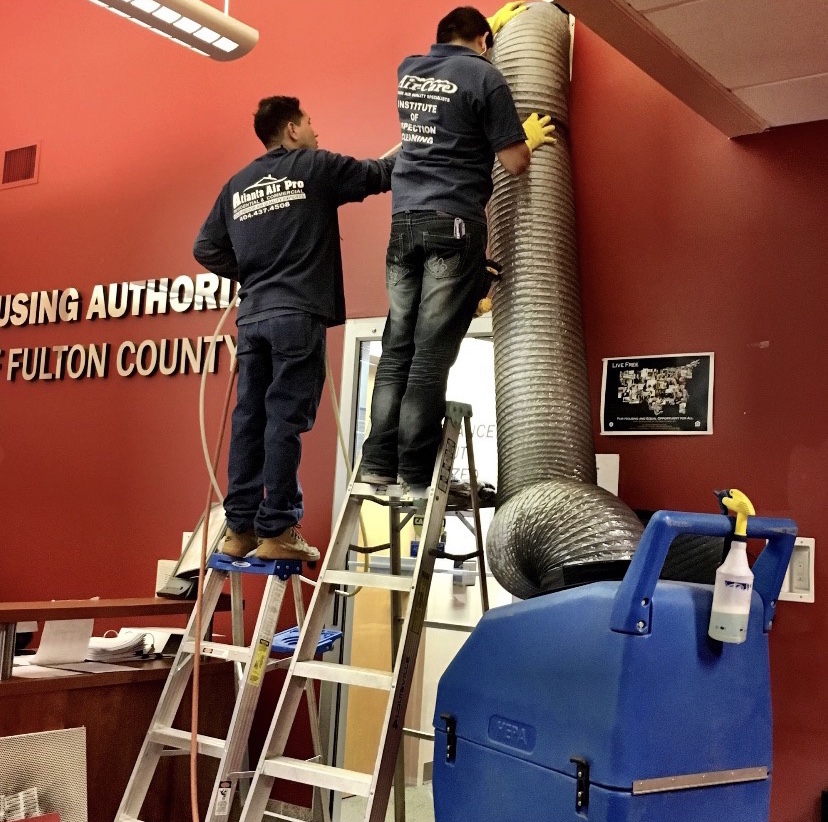As we move further into the 21st century, the value of efficient heating, ventilation, and HVAC systems, or heating, ventilation, and air conditioning, cannot be overemphasized. These systems play a crucial role in ensuring comfortable internal environments in both domestic and commercial settings. But with advancements in technology, the HVAC arena is changing rapidly, paving the way for smarter, more efficient solutions. Understanding what HVAC is and how it works is important for homeowners and businesses similarly, especially as the incorporation of intelligent technology begins to revolutionize our expectations of these systems.
In this article explore the future HVAC technology, focusing on the developments that are transforming how we warm and cool our spaces. From adaptive thermostats that understand your behaviors to green systems designed to reduce your monthly bills, the next phase of HVAC is not just about comfort; it’s about establishing a sustainable lifestyle. We will also address frequent HVAC problems, maintenance tips, and periodic considerations to help you make educated decisions for your home or office. Join us as we investigate the realm of HVAC and uncover how utilizing smart technology can lead to a smarter and comfortable future.

Understanding HVAC Basics
HVAC stands for heating, airflow, and climate control. These systems are crucial for maintaining cozy indoor climates in both residential and commercial buildings. AC service but also control air quality, guaranteeing spaces are livable and suitable for occupants. Understanding the fundamental components of HVAC systems helps property owners and building managers make wise decisions about setup, maintenance, and upgrades.
At its foundation, an HVAC system is made up of three primary functions: warmed air, cooling, and air exchange. Heating is typically achieved through furnaces or heat exchangers that heat the air during colder months. Cooling is primarily provided by air conditioning units that decrease indoor temperatures in response to increasing heat. Ventilation plays a important role by allowing fresh air to circulate while venting stale air, which is important for preserving a healthy living environment.
A well-designed HVAC system should function efficiently and quietly, providing reliable comfort throughout a building. Common types of systems include main air conditioning, ductless mini-splits, and geothermal systems, each with its advantages and uses. Comprehending these basics sets the groundwork for tackling more intricate topics, such as diagnosing common problems and investigating smart technology advancements in HVAC.
Smart Heating, Ventilation, and Air Conditioning Innovations
The surge of advanced tech has changed the HVAC sector, making heating systems more efficient and easy to use. Cutting-edge features such as wireless connectivity allow owners of homes to manage their HVAC systems from afar through mobile apps, allowing immediate changes based on their wants and timing. This connection not just improves ease of use but also promotes energy effectiveness by adjusting system operations according to who is present patterns.
In addition, smart HVAC systems often include learning algorithms that monitor user habits over time. These systems can automatically adjust temperatures based on when the house is in use or unoccupied, significantly lowering energy use during idle times. Additionally, connections with smart home devices, such as voice assistants, allows smooth control, permitting users to change their climate settings with simple voice commands, enhancing the overall ease of the home environment.
An additional key advancement is the use of sophisticated sensors that track indoor air purity and humidity levels. These sensors can communicate with the HVAC system to make immediate adjustments, ensuring ideal ventilation and air quality. By measuring contaminants, irritants, and humidity, these smart systems not only provide a comfortable environment but also add to better health and welfare for the residents, showcasing the multifaceted advantages of adopting smart HVAC solutions.
Ensuring Effectiveness & Cozy Atmosphere
In order to guarantee your HVAC system operates optimally, routine maintenance is essential. This entails replacing air filters, inspecting ductwork, and scheduling professional tune-ups. Replacing filters monthly or every few months can significantly enhance air quality and system efficiency. Ignoring filters leads to blocked systems, increasing energy consumption while compromising comfort levels in your home. ac system can detect potential issues early on, ensuring the system runs smoothly throughout the year.
In addition to regular maintenance, smart technology integration can enhance both efficiency and comfort. Smart thermostats, for instance, are capable of adjusting to your schedule, allowing you to set temperatures based on your daily routines. By using these devices, you can prevent unnecessary heating or cooling when the house is empty, resulting in substantial energy savings. Additionally, smart sensors can detect when windows are open and modify HVAC settings accordingly, which helps maintain an ideal indoor environment.
Lastly, ensuring proper insulation and ventilation is crucial in maximizing HVAC efficiency. Well-insulated homes retain temperature better, reducing the workload on your system. Furthermore, good ventilation is essential for sustaining indoor air quality, which is vital for comfort and health. By addressing these additional factors, homeowners can create a balanced balance between energy efficiency and comfort, resulting in a more enjoyable living environment.
